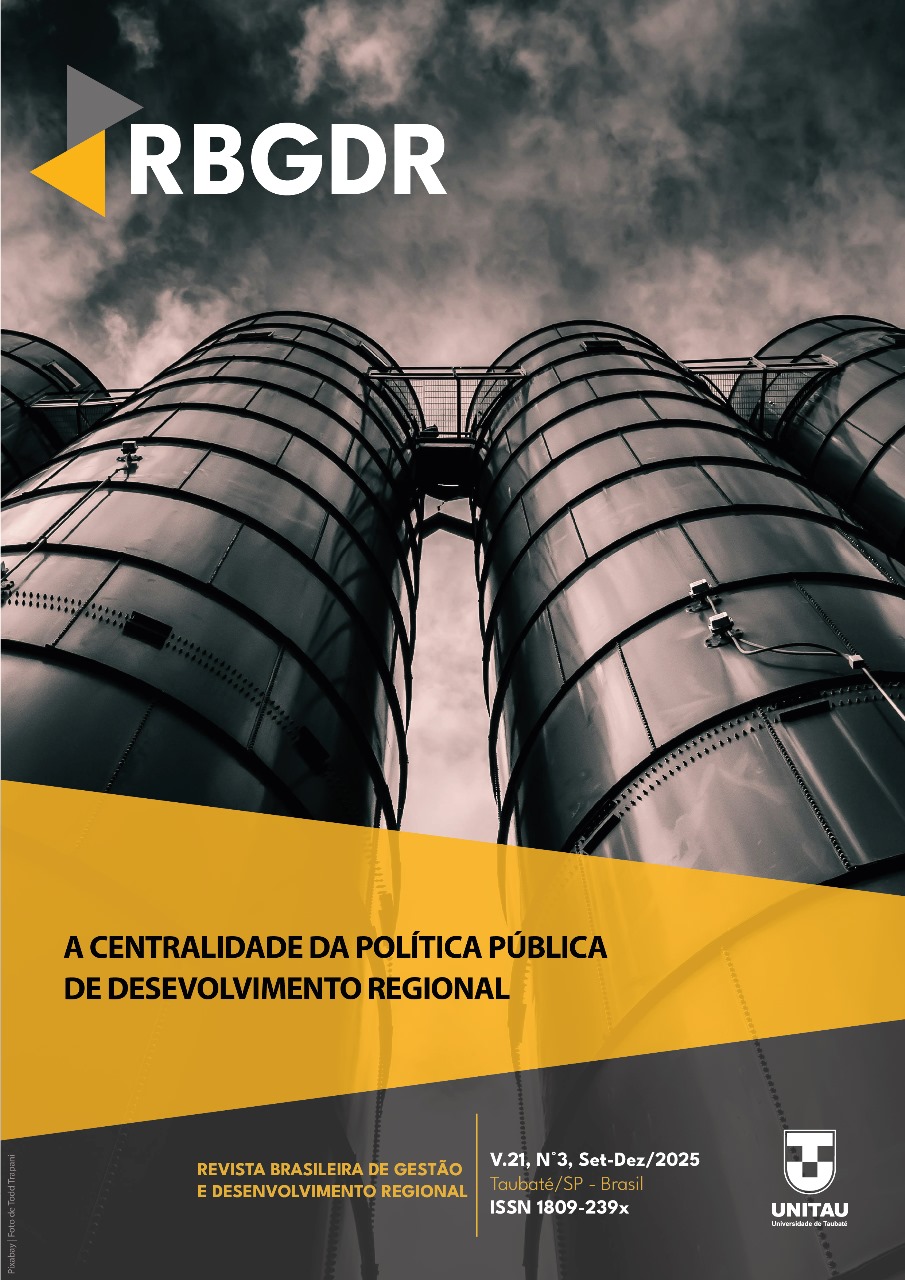FAMILY FARMING AND PRODUCTIVE TRANSFORMATIONS: AN ANALYSIS OF BRAZIL AND THE SOUTHERN REGION
DOI:
https://doi.org/10.54399/rbgdr.v21i3.8160Keywords:
Reprimarization. Land use. Land structure. Food. Productive transformations.Abstract
The present research aimed to interpret the meaning of the transformations observed in agricultural production in Brazil and the Southern Region, compared to changes in family farming, focusing on the crops of rice, beans, cassava, corn, and soybeans, during the period from 1982 to 2022. For this purpose, data collection was conducted for the study period, taking into account the planted area and production of the selected crops based on the Municipal Agricultural Survey (PAM) and the Agricultural Censuses of 2006 and 2017, in addition to a literature review. The results show that Brazil increased soybean production from 4.2% to 11.3%, and corn from 7.2% to 10.2%, while the combined share of the other three products decreased from 12% to 2.9% during the investigated period, a trend followed by agriculture in the Southern Region, except for rice. Regarding family farming, at both scales, a reduction in production was observed for all analyzed crops, except for soybeans, which were expanded. These data reinforce findings from other studies, which indicate an increasing specialization of Brazilian agriculture in the production of agricultural commodities, as well as a certain detachment of family farmers from their historical role in food production, a relatively new phenomenon. These substantial transformations occur in the context of prioritizing international market demands over the domestic market, in a scenario of the economy's re-primarization.
Downloads
Metrics
Downloads
Published
How to Cite
Issue
Section
License
Copyright (c) 2025 Revista Brasileira de Gestão e Desenvolvimento Regional

This work is licensed under a Creative Commons Attribution-NonCommercial 4.0 International License.
Authors who have their papers accepted and published in the Brazilian Journal of Regional Management and Development must agree to the copyright policy CC BY https://creativecommons.org/licenses/by/4.0/.
If the article is accepted for publication, the copyright is automatically assigned to the Brazilian Journal of Regional Management and Development.


















